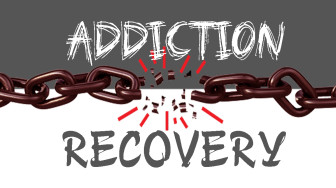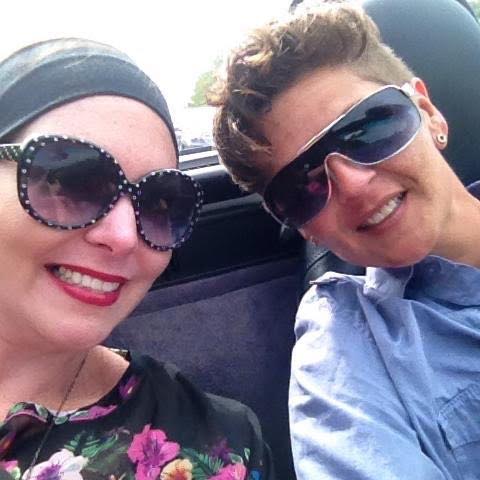 By Amy Tee
By Amy Tee
Looking back, I can clearly see my life was a crockpot of chaos, a rolling boil 30 years in the making.
My story of addiction is not the typical story of addiction.
Unlike most addicts, I never woke up needing a drink. I didn’t crave alcohol and luckily I didn’t need to detox.
On the other hand, like most addicts, I lost the most important things to me — friends/lovers, a promising career and most of all, myself. Physical, emotional and sexual abuse left ignored had all the makings of the perfect storm — a recipe for disaster.
Beginning with my childhood, I was born out of wedlock and adultery. Until I was 7, my father was the mystery man. He had his own wife and kids to run home to. He came over after I went to bed and was gone by morning.
When I was 7, we moved in with him. It was at that time in my life that I remember the sadness entering my soul. I was a shy, latch-key kid with low self-esteem.
During adolescence, I became severely overweight. I was bullied and tormented through high school.
I struggled with my sexuality. I had issues with intimacy that stemmed from my earlier years of sexual abuse from a family member. I worked at my family’s restaurant. I worked weekends, school vacations, and when my parents went on vacation.
I was reserved, timid, and alone. These qualities were the backbone of my addiction.
I didn’t start drinking until my 20s. At first, it was a social thing. I gained superficial confidence by losing 130 pounds. I fell in love and began to get comfortable in a new lifestyle.
I was making friends and found a new social circle. My friends were big drinkers.
We drank to celebrate, to pass time and even because it was Tuesday and hot outside. We didn’t need a reason. It was just part of our lifestyle.
I wasn’t able to recognize that it was excessive because it was my normal. In my late 20s, I found a new passion in stand-up comedy. I was soon performing around the country.
I was getting the attention I desperately craved in my childhood. The Boston Globe named me a rising star. I was getting attention from women – a lot of women.
Alcohol took my confidence to a new level. I was on top of the world.
In my 30s, I really found myself. My career as a standup comedian was taking off. I was touring the country. I had fans and a new love.
My drinking became more than a lifestyle. I was never the drunk that needed a drink every day, but it was my vice to be “Amy Tee.” A career in comedy consists of nightclubs and bars four or five nights a week.
Drinking became a coping mechanism to manage my social anxiety. In hindsight, it made me ugly and pushed everyone away, especially those that I loved.
I had no idea how much ego and arrogance was in a bottle of gin.
It was April 17, 2010, when I woke up after I had passed out in a fireplace in a strange apartment in New York City. Somehow, I was in my mid-30s, had gained more than 60 pounds and was $62,000 in debt.
My car had been repossessed. I destroyed my personal and professional reputation. I was financially and emotionally bankrupt.
The only thing I had to show for it was isolation, humiliation, and desperation. I knew everything I did and was doing was wrong, but was too exhausted and numb to fight back.
I had spiraled out of control and didn’t know what to do. I was someone I didn’t even like, but couldn’t change. There’s really not an APP for that.
The pain was so raw that the idea of living another day was unbearable. I had nothing left to give or to live for. I hit my rock bottom.
I was diagnosed with bipolar in April of 2010. My text book patterns of success and self-destruction went undiagnosed for 30 years, yet I had every symptom of someone living with bipolar. I spent at least 10 years denying I was an alcoholic.
It makes sense to me why professionals call it dual diagnosis. I took a good long look at myself. It seemed to be overnight that a few drinks turned into many blackouts.
I knew if I ever had a chance at happiness, alcohol couldn’t be involved. My life turned around when I got sober, went to therapy, and practiced being the person I knew I was and wanted to be.
The absence of alcohol allows me to see life through a clear glass. Most important, I practice what I preach and hold myself accountable.
MY RECOVERY IS MY RESPONSIBILITY. I am responsible for MY actions and the choices that I can control. I have to put the work in. I’m not looking for a pill to fix or to blame. It’s no one’s fault but my own if repeat the same dysfunctional pattern.
Sobriety placed my wife into my life. I feel like the universe tailor-made her and hand-delivered her to me. I am finally balanced and proud to be the person I’ve become.
My existing friends are people I am proud to be around. This new-found health has inspired me to dedicate my life to traveling the road of wellness, assisting anyone I can help along the way.
I speak for NAMI (National Alliance on Mental Illness) all across the state building awareness and breaking down stigmas in mental health issues.
I’m still performing stand-up comedy and call Haverhill, Mass., home. I teach comedy at North Shore Community College.
I started an organization called ECT, which stands for Experimental Comedy Therapy.
MISSION STATEMENT: Experimental Comedy Therapy believes that humor is vital to a person’s well-being. To that end, ECT creates/coordinates/orchestrates events and educational speaking engagements that bring people together in a safe, sober environment filled with laughter and hope.
ECT EVENTS are designed to leave you feeling good about yourself. ECT EVENTS encourage participants to be responsible for the energy they put into the world.
ECT is dedicated to advocating for the mentally ill and the mental health profession by opening minds and changing behaviors through education and example.
ECT donates a percentage of its proceeds to mental health organizations, as well as individuals or families in need that are severely impacted by mental health or addiction issues.
ECT is also the acronym of how I try to live my life. Be responsible for the Energy I bring into this life and live with Compassion and Tolerance.
Breaking the Chains is an InDepthNH.org column in which people recovering from drug and alcohol addiction and their loved ones tell their stories in their own words. To share your story with or without using your full name, please contact Nancy West at nancywestnews@gmail.com
More information about the National Alliance on Mental Illness can be obtained by calling 1800-950-6264 or online at https://www.nami.org/#
More information about ECT can be obtained at http://goo.gl/R5OHoy






